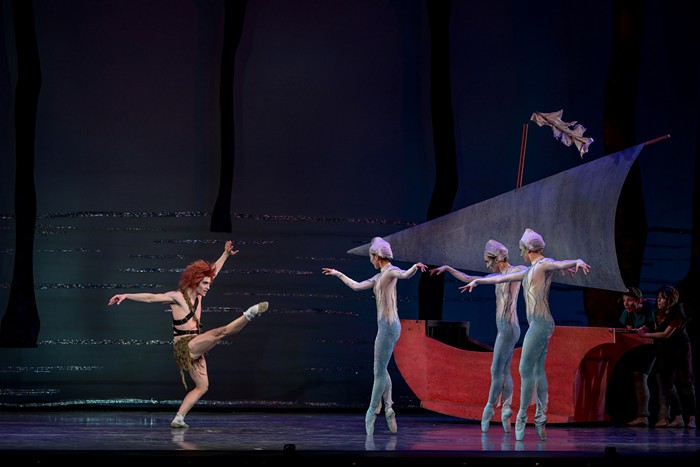"IT'S A GOOD THING you didn't review The Yellow Wallpaper," said my theater pal as we left Portland Center Stage's production of Charles Dickens' Great Expectations, "because that would have been two crazy ladies in the attic!"
She was speaking, of course, of the batshit insane Miss Havisham, an alleged madwoman in the vein of Charlotte Perkins Gilman, minus the implied feminism. I think we're supposed to be kind of horrified by Miss Havisham—she lives in a weird house with no light, she has a real Bride of Frankenstein getup she never changes out of, she doesn't throw anything away, and she talks about being dead a lot. But played by Dana Green in full Sarah Bernhardt mode, she was my favorite of Dickens' unfortunate souls. And after slogging through Purity, Jonathan Franzen's unfortunate riff on Great Expectations, seeing the original done justice on PCS' grand, cobwebbed stage was just the palate cleanser I needed.
But something nagged at me: the script. This Great Expectations sometimes veers into the third person. There's no narrator, but the characters describe their inner lives in voice-of-god externalizing monologues. Reader, I hate that. Assuming the people onstage can act, it's unnecessary. If I'm going to feel infantilized by a play, I'd rather it be at an actual children's theater, because at least then my frustration can be tempered by knowing I am not the target demographic.
Just as I was getting REALLY WORKED UP about this, I looked at the program and realized that this adaptation was first commissioned for Seattle's Book-It Repertory Theatre. No wonder! The "I'm my own narrator!" approach is the horrible bread and butter of Book-It shows. The approach seems designed for teenagers, except when I really was a teenager, and I joined my high school English class of deeply nerdy, achievement-obsessed, Scandinavian youths on a field trip to see one such adaptation, the entire group groaned and laughed cruelly at the wacky narration, and rightly so.
This is really too bad, because outside of that cheesy gambit, Great Expectations has a lot going for it: Green's Miss Havisham; Isaac Lamb doing what he does best as a couple of unsavory characters; and John Hutton, like a strung-out Ichabod Crane, as two types of criminal.
If only they would stop talking about themselves so much.



















